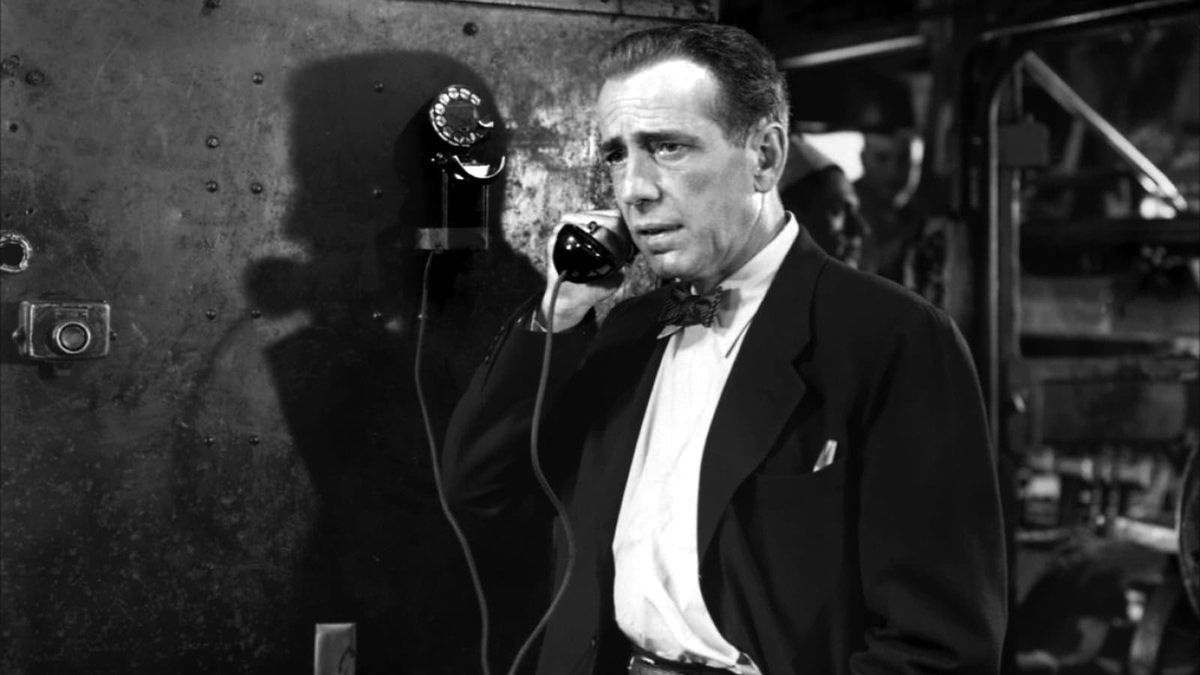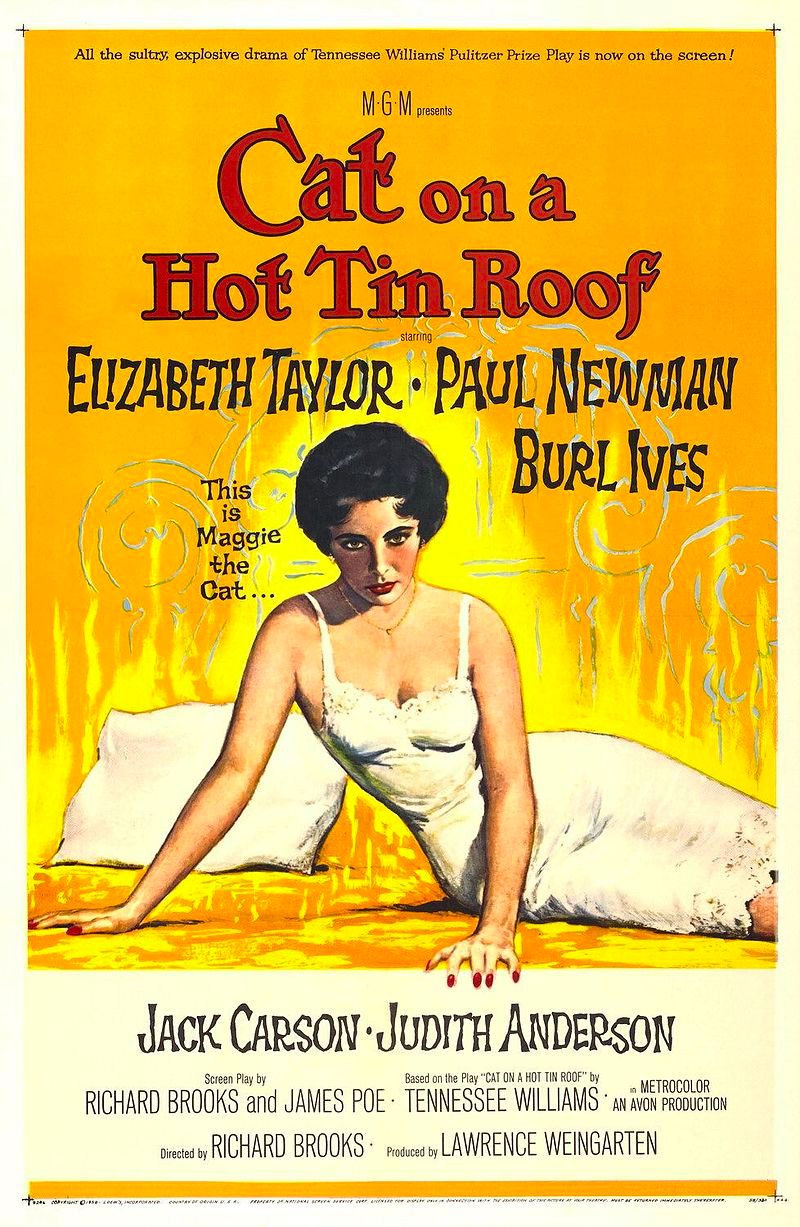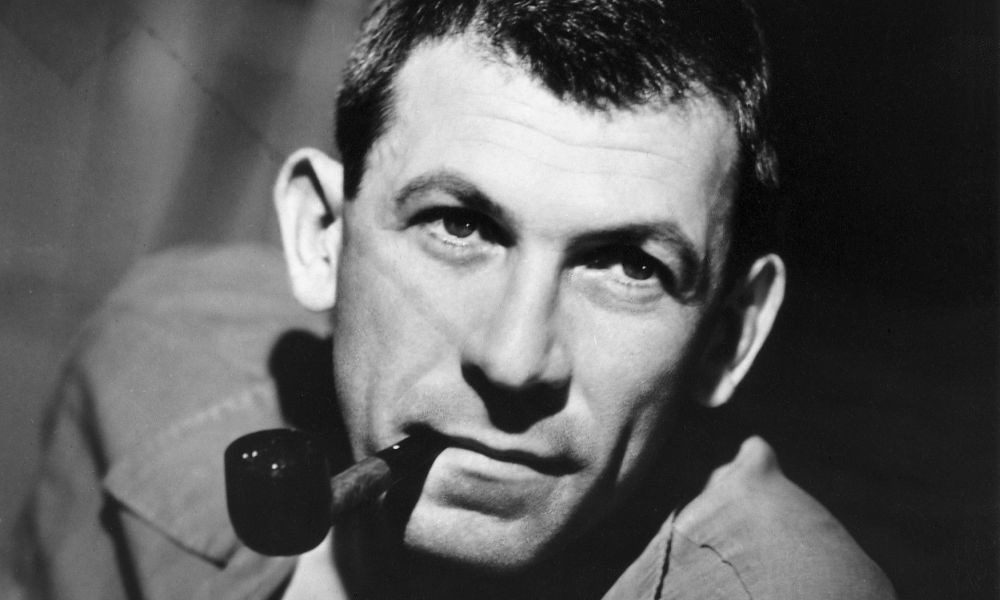"A pioneering figure in independent filmmaking, writer-director Richard Brooks applied his journalistic background to his feature film career, in which he explored the best and worst in human behavior in films like The Blackboard Jungle (1955), Cat on a Hot Tin Roof (1958), The Professionals (1966) and In Cold Blood (1967)." - Turner Classic Movies
Richard Brooks
Director / Screenwriter / Producer
(1912-1992) Born May 18, Philadelphia, Pennsylvania, USA
(1912-1992) Born May 18, Philadelphia, Pennsylvania, USA
Key Production Country: USA
Key Genres: Drama, Melodrama, Crime, Western, Family Drama, Psychological Drama
Key Collaborators: Cedric Gibbons (Production Designer), Pandro S. Berman (Producer), Conrad L. Hall (Cinematographer), George Grenville (Editor), Joe De Santis (Character Actor), Elizabeth Taylor (Leading Actress), Burt Lancaster (Leading Actor), Paul Newman (Leading Actor), Jean Simmons (Leading Actress), John Forsythe (Leading Actor), Philip G. Epstein (Screenwriter), Julius J. Epstein (Screenwriter)
Key Genres: Drama, Melodrama, Crime, Western, Family Drama, Psychological Drama
Key Collaborators: Cedric Gibbons (Production Designer), Pandro S. Berman (Producer), Conrad L. Hall (Cinematographer), George Grenville (Editor), Joe De Santis (Character Actor), Elizabeth Taylor (Leading Actress), Burt Lancaster (Leading Actor), Paul Newman (Leading Actor), Jean Simmons (Leading Actress), John Forsythe (Leading Actor), Philip G. Epstein (Screenwriter), Julius J. Epstein (Screenwriter)
"As a writer-director, Brooks turned out some supercharged films laced with vigorous action (The Professionals, 1966, a rousing Western version of Homer's Iliad, is the best example); unfortunately, he often reduced more complex material to the same melodramatic level. Thus, his versions of classic novels (The Brothers Karamazov, 1958; Elmer Gantry, 1960; Lord Jim, 1965) are superficial and unsatisfying despite the strenuous effort and expensive production values." - Ted Sennett (Great Movie Directors, 1986)
"Mr. Brooks's cinematic career spanned more than 40 years, beginning in the early 1940s, and his work included 37 films. They were characterized by an uncompromising, hard-boiled realism, reflected in the macho style of such leading men as Humphrey Bogart and Burt Lancaster. As a director, Mr. Brooks was known in the industry as a rebel and tough guy. He insisted that his films be about something, and he demanded total control in the editing room, script writing and direction. He often refused to show a finished script to his producers, and his actors got their lines one scene at a time, the night before the scenes were to be filmed." - Bart Barnes (The Washington Post, 1992)

Deadline U.S.A. (1952)
"A former sports reporter and radio commentator. Wrote screenplays for eight years (e.g. Brute Force - 1947, Key Largo - 1948) before directing his first movie, Crisis (1950), a thriller set in S. America. Already perceptible were the writer/director's liberal views expressed in heavy, literal style, overstating the obvious. Worthy ventures such as Blackboard Jungle (1955) and Something of Value (1957) demonstrate this." - Ronald Bergan (A-Z of Movie Directors, 1983)
"Brooks was a marvelous movie storyteller. The Professionals, for example, is a classic western as engrossing to watch today as it was in 1966, and Elmer Gantry continues to feel as fresh as the latest news stories about troubled evangelists. But more than that, Brooks' films were always about something: preserving the truths as well as the plots of the literary adaptations, the Tennessee Williams plays, or having a subtext of his own vision. One of his quietest, finest creations was The Happy Ending (1969), a prophetic look at the changing, rising consciousness of women and their determination to have an end to subservience. (The title was both true and ironic.)." - Edward J. Boyer & Charles Champlin (Los Angeles Times, 1992)
"A writer-director since 1950, usually of movies with a strong masculine ethic, whose commercial success was erratic. An independent producer of his own films since the early 1960s, he tended to make intense, low-budget movies that have, on occasion, become major critical and box-office hits. Few Hollywood directors have stayed the course of independent production as long as Brooks." - The Encyclopedia of Hollywood, 2004
"Brooks' breakthrough film as director was the landmark juvenile delinquent drama The Blackboard Jungle (1955). Thereafter, Brooks was regarded as an "independent" (though he didn't officially break away from the studio system until 1965), scripting as well as directing such prestige items as Brothers Karamazov (1958) and Cat on a Hot Tin Roof. He earned several Academy Award nominations, winning the Best Screenplay Oscar for Elmer Gantry (1960)." - Allmovie
"Directing is only writing with a camera. Editing is writing. Scoring is writing. It all has to do with a story, how to tell a story." - Richard Brooks
Selected Filmography
{{row.titlelong}}
GF Greatest Films ranking (★ Top 1000 ● Top 2500)
21C 21st Century ranking (☆ Top 1000)
T TSPDT N 1,000 Noir Films
R Jonathan Rosenbaum S Martin Scorsese
21C 21st Century ranking (☆ Top 1000)
T TSPDT N 1,000 Noir Films
R Jonathan Rosenbaum S Martin Scorsese
"Fan Club"
These film critics/filmmakers have, on multiple occasions, selected this director’s work within film ballots/lists that they have submitted.
These film critics/filmmakers have, on multiple occasions, selected this director’s work within film ballots/lists that they have submitted.


